Filter by
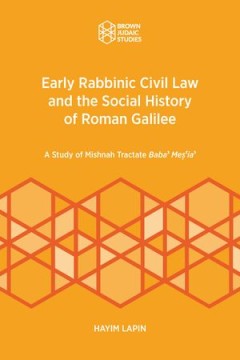
Early Rabbinic Civil Law and the Social History of Roman Galilee
This study focuses on tractate Baba Mesi‘a’ of the Mishnah, which deals primarily with contracts of various kinds. Lapin's book focuses both on the literary traits of the tractate and, more importantly, attempts to tease out some of the implications of the tractate's depiction of social and economic relationships for an understanding of the history of later Roman Palestine.
- Edition
- -
- ISBN/ISSN
- 9781946527561
- Collation
- -
- Series Title
- -
- Call Number
- -
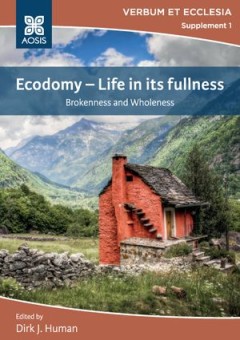
Ecodomy - Life in its fullness
This book provides a coherent and conceptual portrayal of aspects of the theological research theme, entitled Ecodomy (literally meaning to ‘build a house’). In its figurative meaning the term Ecodomy addresses the theme, ‘life in its fullness’. This fullness of life entails a polarity which is inherently part of life, namely its brokenness and its wholeness. From various theological di…
- Edition
- -
- ISBN/ISSN
- 9781928396147
- Collation
- -
- Series Title
- -
- Call Number
- -
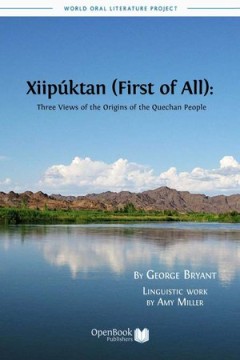
Xiipúktan (First of All) Three Views of the Origins of the Quechan People
The Quechan people live along the lower part of the Colorado River in the United States. According to tradition, the Quechan and other Yuman people were created at the beginning of time, and their Creation myth explains how they came into existence, the origin of their environment, and the significance of their oldest traditions. The Creation myth forms the backdrop against which much of the tr…
- Edition
- -
- ISBN/ISSN
- 9781909254411
- Collation
- -
- Series Title
- -
- Call Number
- -
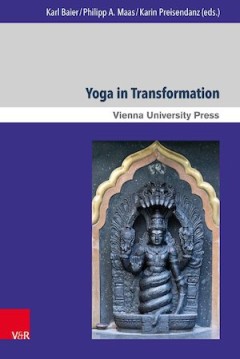
Yoga in Transformation Historical and Contemporary Perspectives
"This volume explores aspects of yoga over a period of about 2500 years. In its first part, it investigates facets of the South Asian and Tibetan traditions of yoga, such as the evolution of posture practice, the relationship between yoga and sex, yoga in the theistic context, the influence of Buddhism on early yoga, and the encounter of Islam with classical yoga. The second part addresses aspe…
- Edition
- -
- ISBN/ISSN
- 9783847108627
- Collation
- -
- Series Title
- -
- Call Number
- -

Islamic Studies in the Twenty-first Century Transformations and Continuities
In recent decades, traditional methods of philology and intellectual history, applied to the study of Islam and Muslim societies, have been met with considerable criticism from rising generations of scholars who have turned to the social sciences, most notably anthropology and social history, for guidance. This change has been accompanied by the rise of new fields, studying, for example, Islam …
- Edition
- -
- ISBN/ISSN
- 9789089649263
- Collation
- -
- Series Title
- -
- Call Number
- -
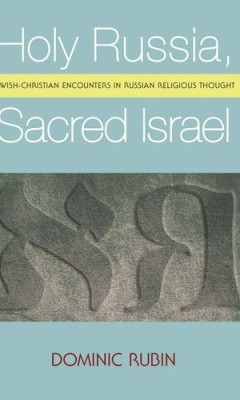
Holy Russia, Sacred Israel Jewish-Christian Encounters in Russian Religious …
"Holy Russia, Sacred Israel examines how Russian religious thinkers, both Jewish and Christian, conceived of Judaism, Jewry and the ‘Old Testament’ philosophically, theologically, and personally at a time when the Messianic element in Russian consciousness was being stimulated by events ranging from the pogroms of the 1880s through two Revolutions and World Wars to exile in Western Europe. …
- Edition
- -
- ISBN/ISSN
- 9781618116901
- Collation
- -
- Series Title
- -
- Call Number
- -
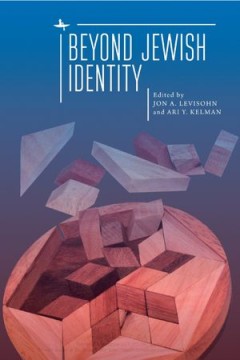
Beyond Jewish Identity Rethinking Concepts and Imagining Alternatives
This volume, the first collection to examine critically the relationship between Jewish education and Jewish identity, makes two important interventions. First, it offers a critical assessment of the relationship between education and identity, arguing that the reification of identity has hampered much educational creativity in the pursuit of this goal, and that the nearly ubiquitous employment…
- Edition
- -
- ISBN/ISSN
- 9781644691281
- Collation
- -
- Series Title
- -
- Call Number
- -
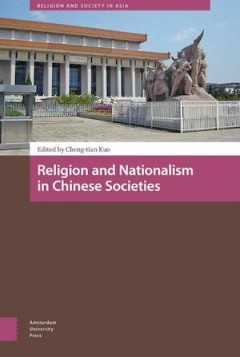
Religion and Nationalism in Chinese Societies
This book explores the interaction between religion and nationalism in the Chinese societies of mainland China, Taiwan, and Hong Kong. Cheng-tian Kuo analyzes the dominant religions, including Chinese Buddhism, Tibetan Buddhism, Daoism, Christianity, Islam, and folk religions, but he also goes beyond that, showing how in recent decades the Chinese state has tightened its control over religion t…
- Edition
- -
- ISBN/ISSN
- 9789462984394
- Collation
- -
- Series Title
- -
- Call Number
- -
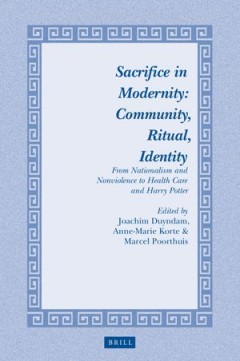
Sacrifice in Modernity: Community, Ritual, Identity From Nationalism and Nonv…
Sacrifice seems to belong to a religious context of the past. In Sacrifice in Modernity: Community, Ritual, Identity it is demonstrated how sacrificial themes remain an essential element in our post-modern society. The shaping of community, performing rituals and the search for identity, three main characteristics of traditional sacrifice, are dynamics of our modern times as well which cannot b…
- Edition
- -
- ISBN/ISSN
- 9789004332065
- Collation
- -
- Series Title
- -
- Call Number
- -
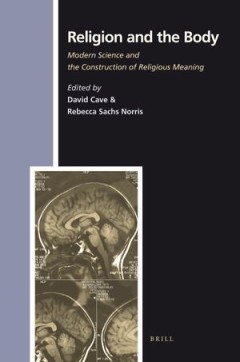
Religion and the Body
This book reflects on the implications of neurobiology and the scientific worldview on aspects of religious experience, belief, and practice. Just as interest in the neurosciences and related fields has burgeoned in contemporary society, interest in the fields of neuroscience and cognitive studies is also growing within the religious studies academy, and reflection on these shifts is well overd…
- Edition
- -
- ISBN/ISSN
- 9789004221116
- Collation
- -
- Series Title
- -
- Call Number
- -
 Computer Science, Information & General Works
Computer Science, Information & General Works  Philosophy & Psychology
Philosophy & Psychology  Religion
Religion  Social Sciences
Social Sciences  Language
Language  Pure Science
Pure Science  Applied Sciences
Applied Sciences  Art & Recreation
Art & Recreation  Literature
Literature  History & Geography
History & Geography